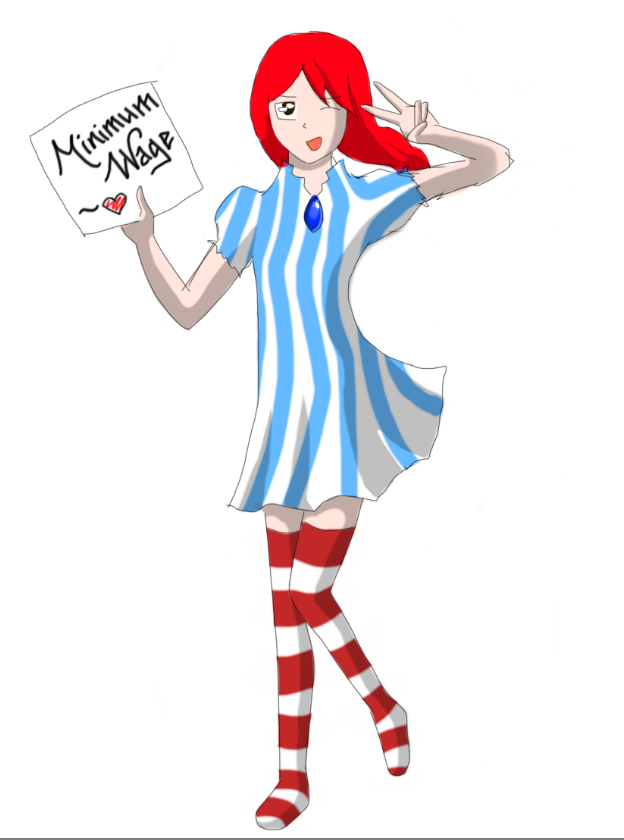The Danger in Personifying Brands and Corporations
October 5, 2019
You scroll through your Twitter feed and you see a friend retweet Arby’s new food portrait of Ms. Frizzle, the teacher from their favorite childhood show The Magic Schoolbus. While retweeting this image may seem innocuous, it is problematic. These characters give a face to a detached corporation and our acceptance of these personifications keeps us complicit with a system that we know doesn’t work.
With the rise of popular democratic figures such as Bernie Sanders and Elizabeth Warren, the discussion around late-stage capitalism has reached mainstream discourse. Noted political theorist Fredric Jameson defines late-stage capitalism as the globalized post-industrial economy where everything—including art and advertising—is commodified and consumable. But there’s a good reason for this distrust; millennials and Gen Z are working longer hours for less money, are paying massively inflated college tuition, and can’t hope for pensions and social security like previous generations. A 2016 Harvard Survey on youths’ political positions show that only 41% of people aged 18-29 have positive feelings towards capitalism.
Given this reality, companies have had to change how they market; they have had to be more conniving. Instead of advertisements on television, brands focus their energy on online media campaigns revolving around being relatable or entertaining. Instead of businesses having to earn your trust, they exploit the trust you have in others for their own gain. While this strategy has been demonstrated for decades through the use of celebrity spokespeople and television and movie tie-ins such as Superbowl commercials, it’s no longer enough, given greater skepticism of capitalism, to rely on the positive associations within the advertisement itself. As a result, corporations’ have made their advertising more personal. Using someone you already follow, a colleague or even a friend, to harness the trust you have in your close relationships, they encourage you to buy everything from food to airline tickets.
Brands personifying themselves doesn’t make them less of a brand. No number of Wendy’s “epic” insults or its creation of a “waifu,” a kind of anime character, to represent their mascot will change its insistence on not paying its tomato farmers a living wage. Flo from Progressive isn’t going to call you up when Progressive and other insurance companies increase their profits by minimizing settlement payouts to their clients.
Our allegiance to these brands is interfering with the fight against capitalism. We can’t disassociate the brand that harms us and the brand that makes funny quips online. They are one and the same. When a brand tries to be entertaining or relatable, it is attempting to form a parasocial relationship with consumers. In short, corporations want people to view media personalities as friends. An increasingly isolated online environment and attention-based economy makes it easy to see corporations as a part of our relational circle, but it’s exactly what they want. Advertisers know we only have so many seconds to engage with their brand when according to CBS News, individuals are inundated with up to 5,000 ads a day; they use these increasingly invasive marketing strategies in an attempt to break through the noise.
We can’t fight capitalism and the harm it causes without fighting the propaganda of advertising that is constantly around us. While it is difficult for any one individual not to be overwhelmed, together we can remind and help one another to start an anti-consumerist revolution.
This piece also appears in our September 2019 print edition.









